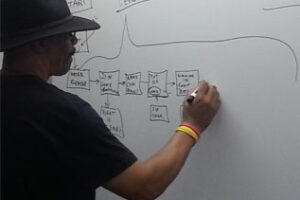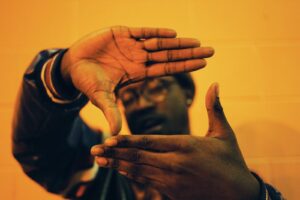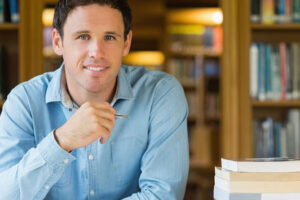At a D.C. business fair, kids test their entrepreneurial skills — and cash in

Isabella Iordache arrived at Saturday’s fair for budding kid entrepreneurs in Cleveland Park with a new game plan: capturing the boy market.
Her handmade headbands had been a hit with girls, she said, but apparently boys weren’t so into hair fashion. So 8-year-old Isabella, a second-grader at Horace Mann Elementary School in D.C., recently expanded into key chains made from plastic Shrinky Dinks artwork.
“I thought about what boys might like,” she said. “I know boys like key chains.”
It was exactly the kind of lesson that organizers of the third annual D.C. Acton Children’s Business Fair said they had hoped the 125 pint-sized peddlers would learn from starting their own businesses and testing their sales skills with more than 3,000 passersby on Connecticut Avenue NW.

“It’s learning by doing,” said David Kirby, who co-founded the fair with his wife, Nicole Spencer. The couple plans to open a private preschool and elementary school in the District focused on entrepreneurship.
“We challenge the children to be completely in charge of their own business and ask the parents to step back and allow their children’s passion to do the work,” Kirby said. “When you do that, it’s astonishing what they can do.”
The event started in Austin in 2007 as a way to promote entrepreneurship among children and has expanded to more than 100 cities worldwide. The kids, ages 6 to 14, develop a business strategy, market their products, hone their sales pitches and set their prices.
In addition to trying to make a profit, they competed for $50 prizes for best business potential, best sales pitch and best original marketing.
Some had business cards and a website. A few had their own YouTube channels and Facebook pages. Products included handmade cake pops, organic dog biscuits, slime, jewelry, bath products and bookmarks.
Semaiah Luma, 10, sold something she said she’d never seen in a store: Colorful African outfits, complete with head wraps, for Barbie dolls.
“You usually just see pink clothes or plain casual clothes,” said Semaiah, a fourth-grader from Baltimore. “You don’t really see African clothes.”
Rasa Thevenot, 11, said she got the idea for her “Fizzy Fun” line of homemade bath products after seeing bath bombs selling in stores for $8 a pop. The colorful spheres fizz up in the tub.
“I went to Lush and saw all of these things, and I was thinking, ‘These are very expensive. I could make them at home for half the price,’ ” said Rasa, a fourth-grader at Haycock Elementary School in Falls Church, Va.
Three seventh-grade friends from Alice Deal Middle School in the District touted “Nook in a Book.” Gabby Bennett, 12, said they gathered old books from around their homes and reconfigured them inside to make secret compartments for jewelry, money, even a cellphone.
“And if you want to hide candy from a sibling, it’s a good place to put it,” said Juliet Franklin, 13.
Sales were going well, they said, but not as well as last year, when their booth was closer to the center of the fair.
“We’ve learned location matters,” Juliet said.
“But we did have a returning customer,” added Hadley Carr, 13.
“Which was nice,” Juliet added.
Because they’d had books and materials left over from last year, they said, the money they’d make would be pure profit — more than $150.
Fletcher Shull, 9, came from Newport, R.I. to sell homemade blueberry, mango and sweet potato dog biscuits from a bright red bike. (Hence the name of his business: the Biscuit Bike.)
The bone-shaped biscuits had been a big hit with his four dogs, he said, and he thought people would go for the “organic” label.
“They’re made with 100 percent organic flour and baby food,” Fletcher said.
His father, Justin Shull, said he brought his three children to the fair because they liked selling lemonade in the neighborhood. He said he and his wife, Jennifer, wanted them to know what it was like to start a business, like the Kinderwagon stroller company they started when their children were younger.
“We thought it would be a great experience to talk to customers face to face, think about their products and think everything through,” Justin Shull said. “We wanted to teach them that it’s not easy to run a business.”
By the end of the three-hour fair, Isabella estimated her boy-targeting key chains had helped her bring in more than the $200 she made at last year’s fair, though she hadn’t counted her profits yet.
She said she didn’t know whether she wanted to be an entrepreneur someday, but she knew she would donate some of the money she made to charities for diabetes and brain cancer.
“And I’m going to save some,” she said, “for college.”


